
9 Courses
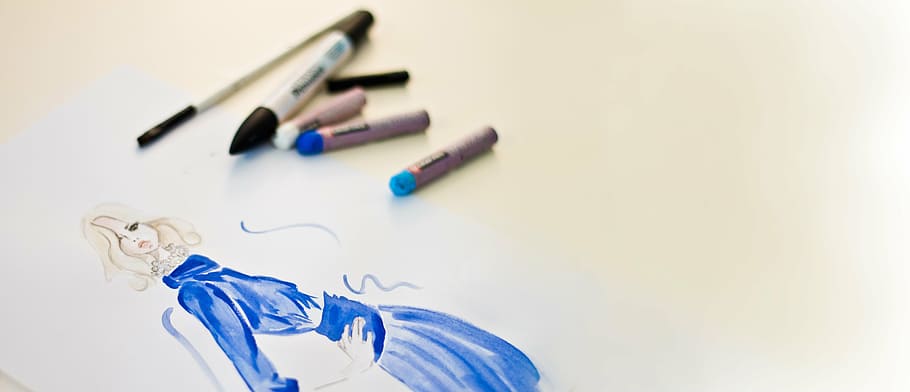
Semester Four
FDT 241 Basic Fashion Design and Illustration (2 Credit Hours)
This course equips students with skills and knowledge that enable students to use the fashion design process to create original fashion design. It will also make it possible for students to brainstorm through effective illustration of fashion activities including drawing and illustrating with the human figure.
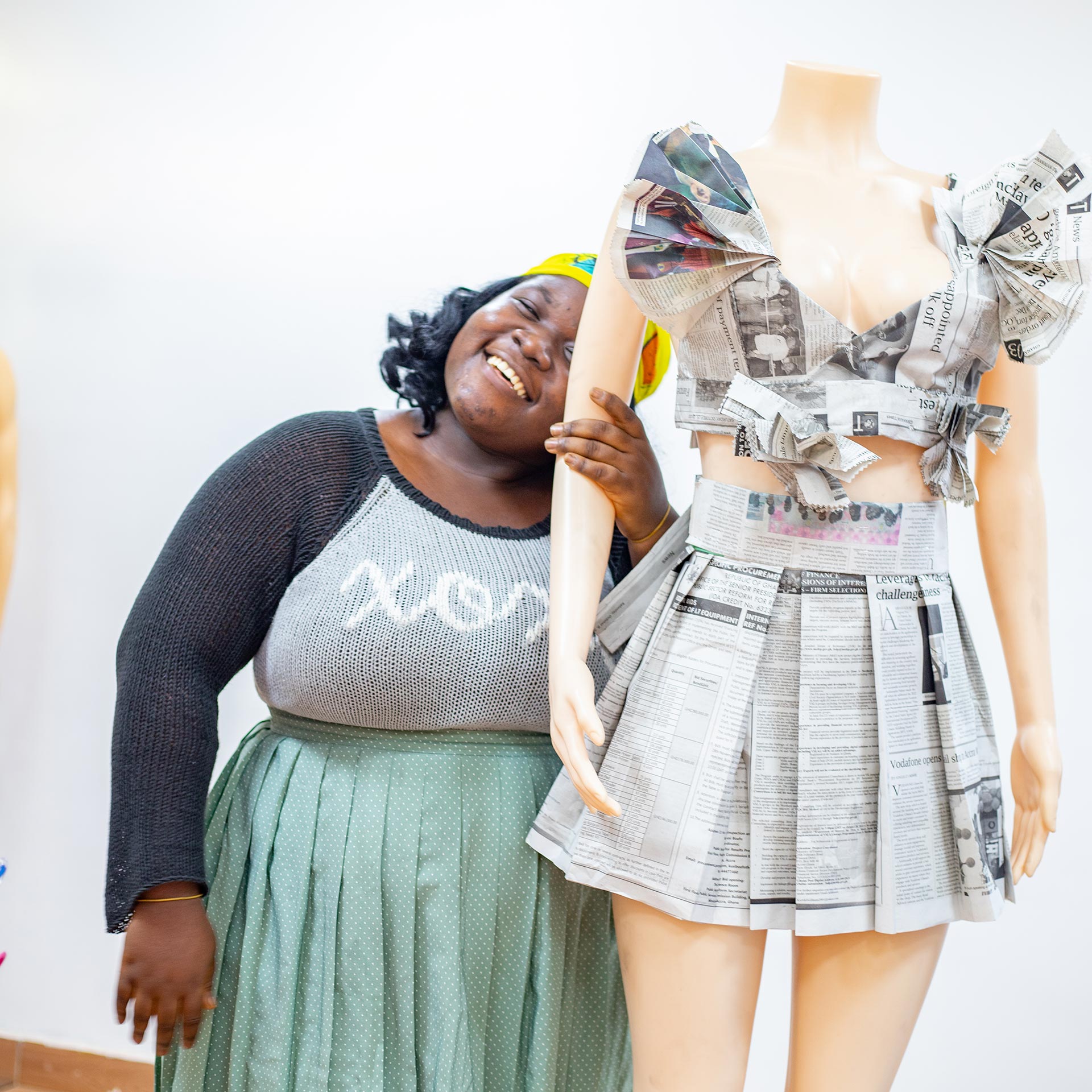
FDT 242 Pattern Technology II (3 Credit Hours)
The course aims at equipping students with the deepening of knowledge and skill in adapting patterns for draped designs/styles and jackets/coats. Emphasis is placed on good finishing and quality control measures.
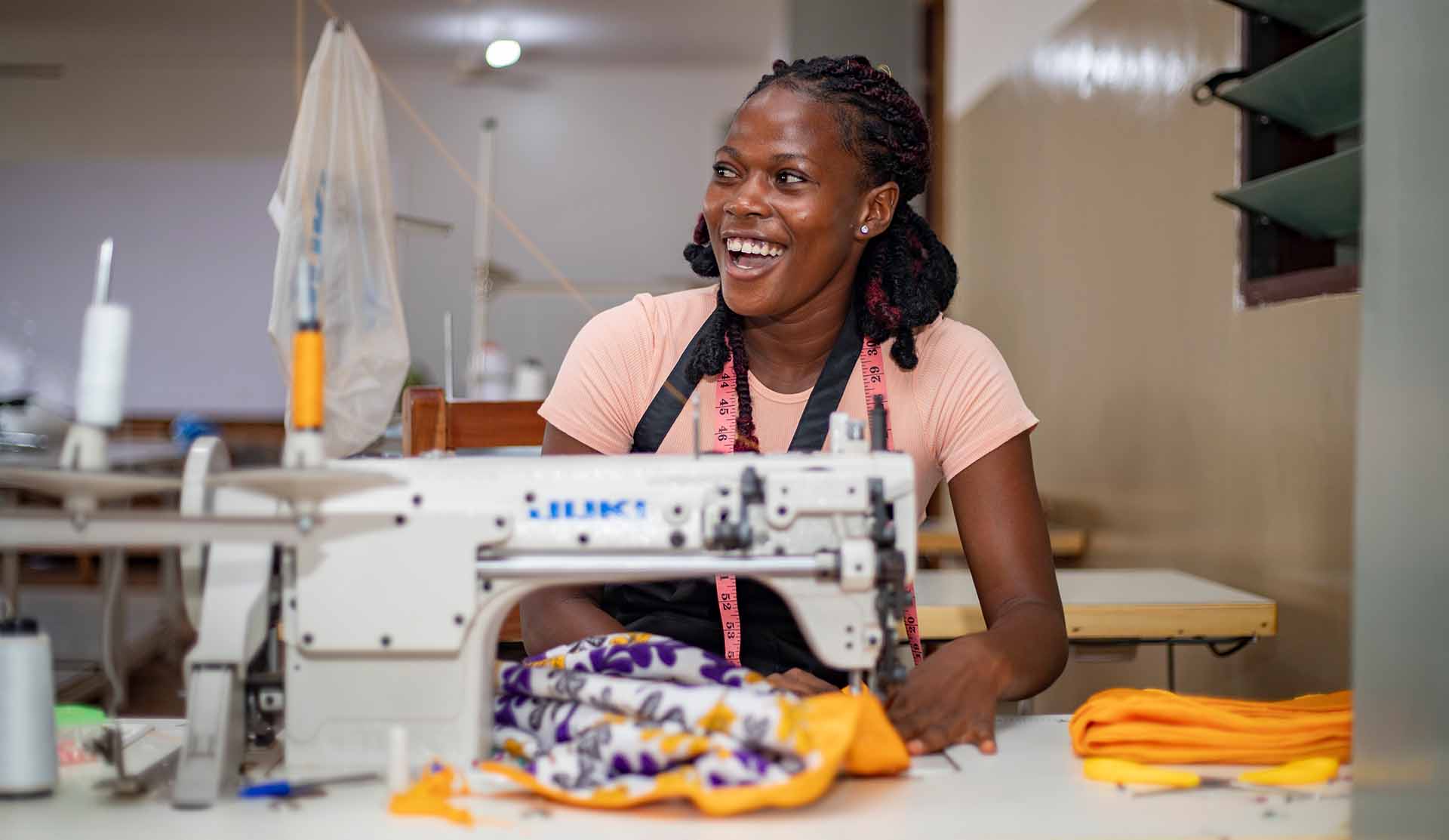
FDT 243 Garment Technology II (3 Credit Hours)
The course aims at equipping students with deeper knowledge and skills in Garment construction that will help to minimize errors, improve dexterity, and increased speed of production to approved factory standards.
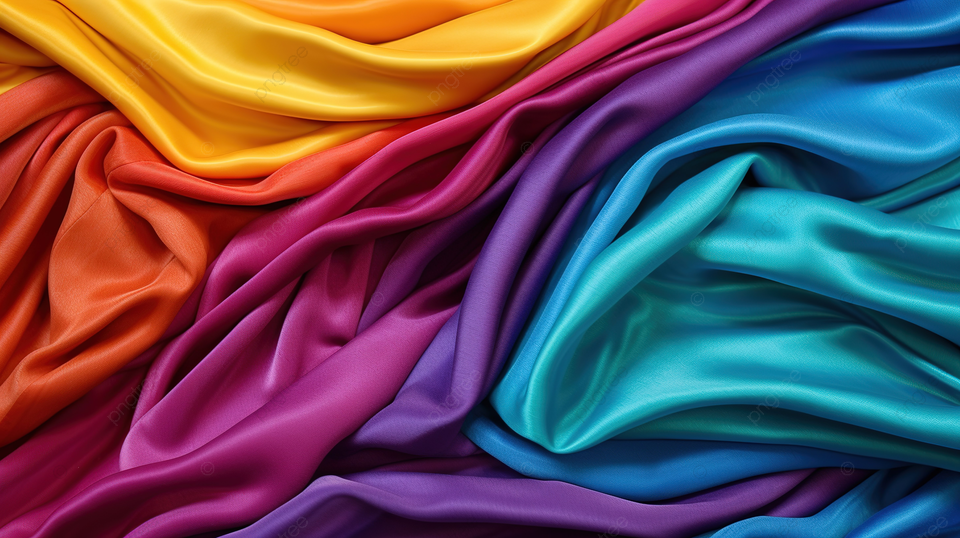
FDT 244 Fabric Studies (2 Credit Hours)
This course is a continuation of Fabric studies I. It equips the student with further knowledge of different types of fabrics that include laces, velvets, piles, felts and those made from other fibres such as rayon, nylon, linen, silk, etc. Additionally, this is made up of the effective application of colour to the purified fabric through various dyeing processes.
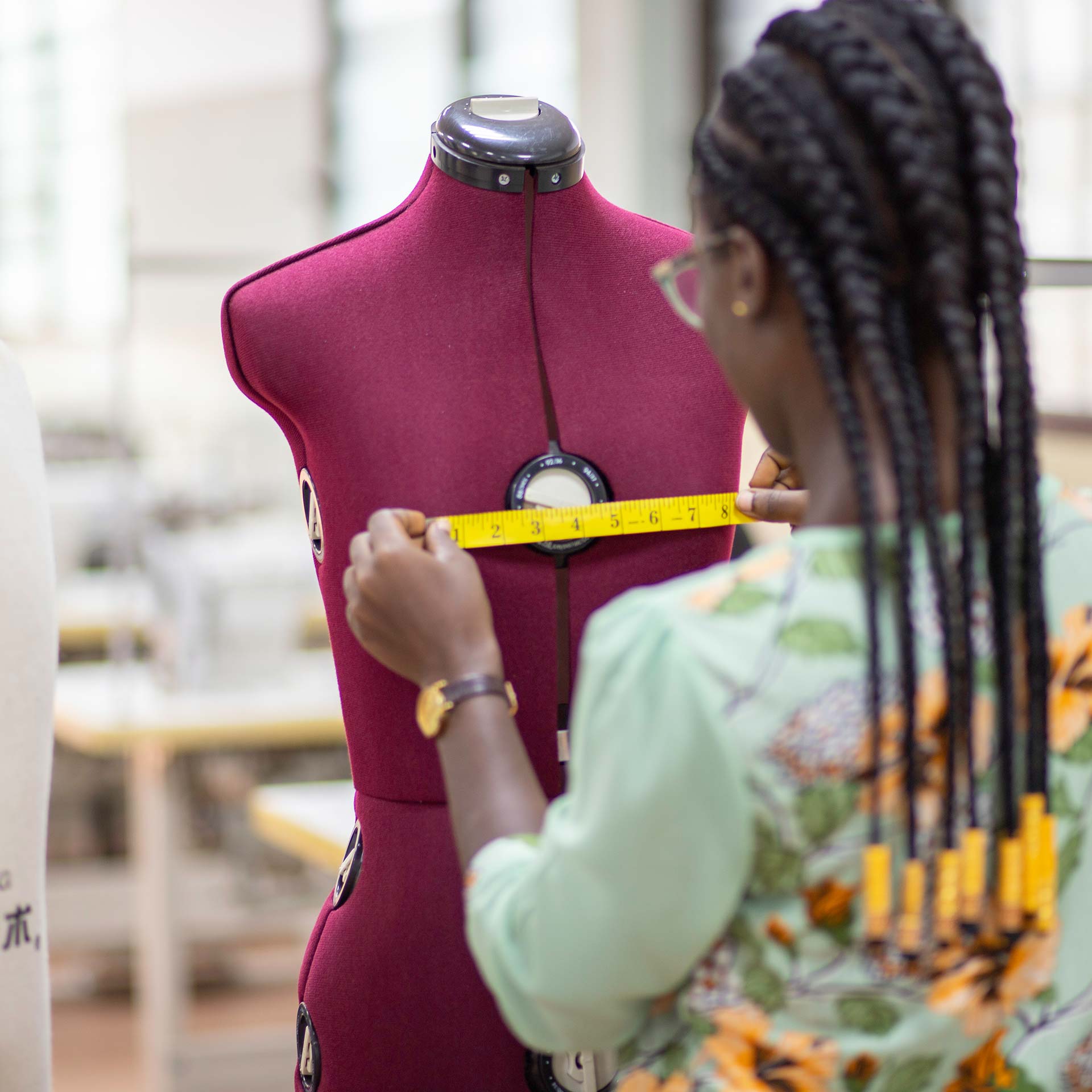
FDT 245 Millinery Design and Production (1 Credit Hour)
This course equips students with basic knowledge and skills in producing millinery items such as hats, fascinators and other head coverings. It also enables students to explore their drawing skills to design and produce fashionable head coverings from various types of fabrics.

FDT 246 Computer Aided Design (2 Credit Hours)
This course enhances knowledge and skills in operating the computer as a drawing, designing and presentation tool. This will also enable students to perform various tasks using a combination of software such as Microsoft Word, Photoshop, and Microsoft PowerPoint for various fashion/textile activities.

FDT 247 Fashion Marketing (4 Credit Hours)
The course provides knowledge and skills to students on the meaning, basic technicalities and process of marketing goods and services, especially those related to fashion products.
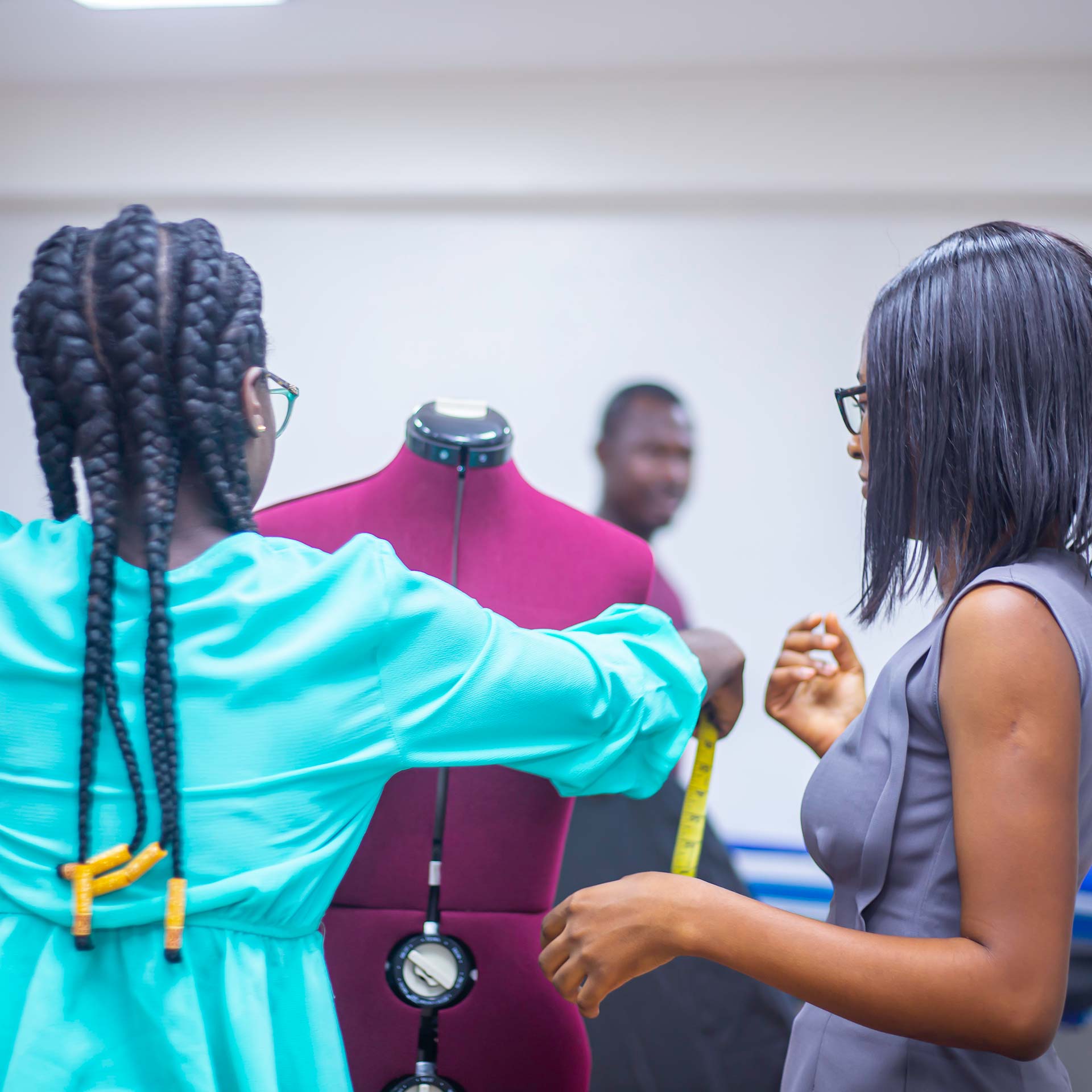
Semester Four
FDT 248 Production Management (2 Credit Hours)
This course provides enhanced knowledge and skills of views of managerial factors which influence day-to-day operation of a fashion/textile factory.
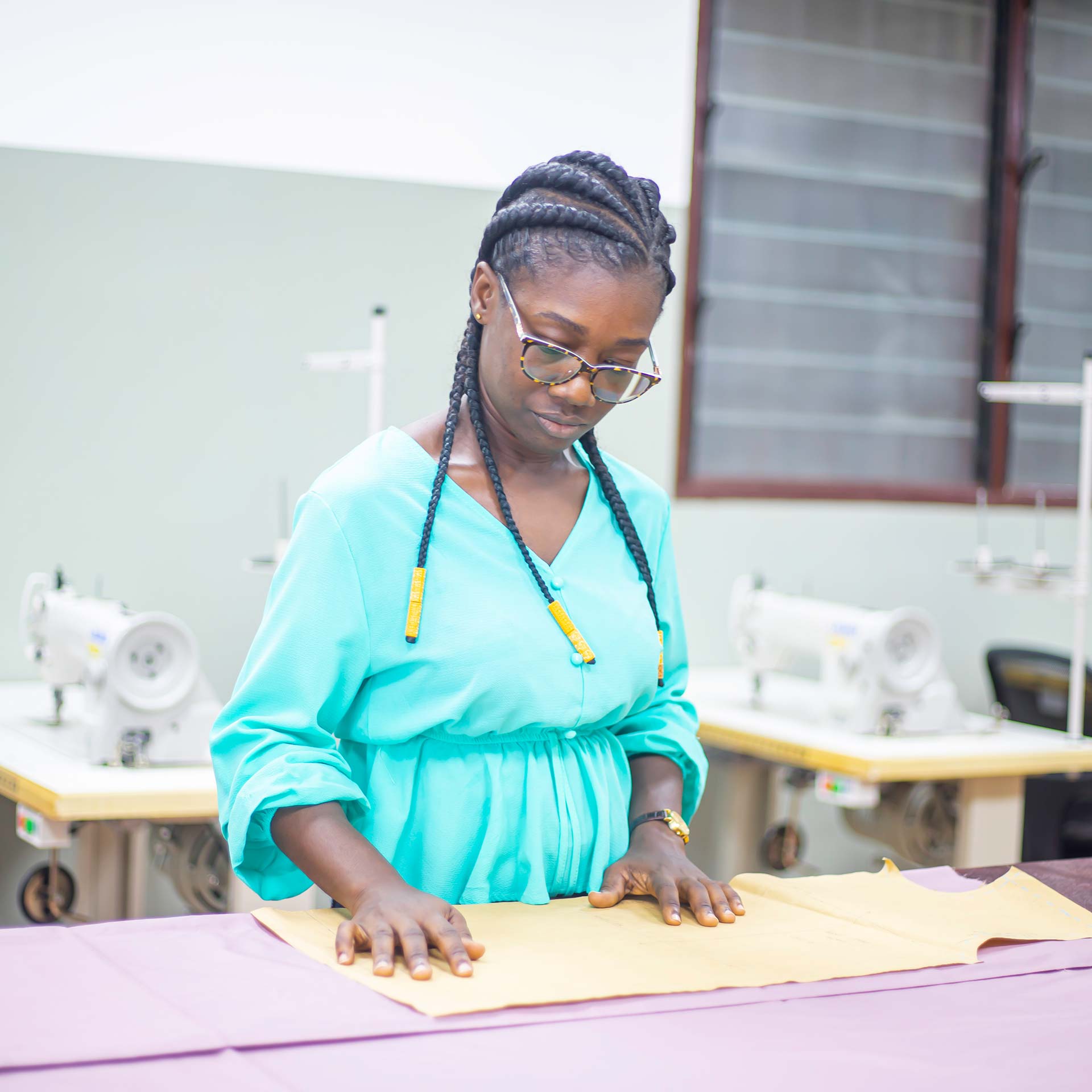
WEL 242 Industrial Attachment II
The aim of the course is to equip students with further practical knowledge and skills in the fashion industry or any related established small-scale fashion and textile enterprise. Students shall necessarily be placed in areas suitable for apprenticeship as trainees from academic fashion training institute.
